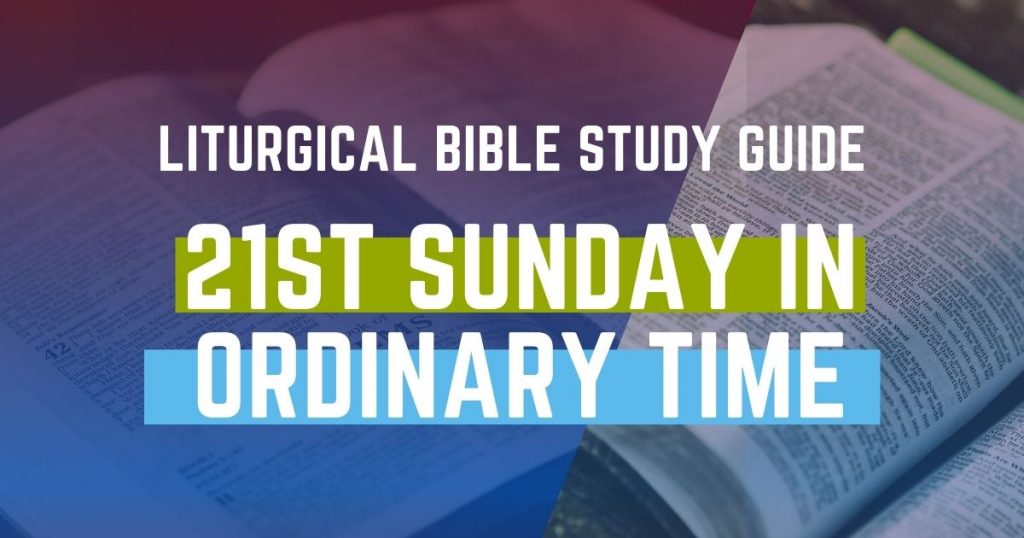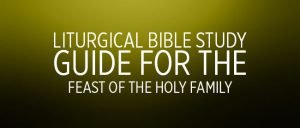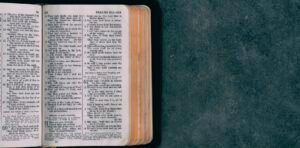1st Reading – Joshua 24:1-2a, 15-17, 18b
Joshua is the sixth book of the Old Testament and is named after the one to whom Jewish tradition attributes authorship. However, as we presently have it, it cannot be entirely his work as some passages point to events which occurred at a later date.
Joshua (Greek: Jesus, Hebrew: Yeshua) was the person designated by Moses to succeed him in the governing of Israel. Moses passed all his authority on to Joshua, with the exception of his priestly powers, which went to Eleazar. Joshua (the name means Yahweh is salvation) had his name changed from Hoshea (salvation) by Moses (Numbers 13:16). It was Joshua who led the Hebrews to victory over the Amalekites while Moses prayed (Exodus 17:8-16). He was elected as the tribe of Ephriam’s representative in the group of 12 sent to reconnoiter the land of Canaan (Numbers 13:8). He and Caleb are the only people who were over the age of 20 when the Jews left Egypt who lived to enter the promised land; all the rest died in punishment for their infidelity (Numbers 14:30-38; 31:26-65; 32:13). The book of Joshua falls naturally into two parts:
1. The crossing of the Jordan, the fall of Jericho, and the conquest of Palestine (Chapters 1 through 12); and
2. The division of the lands (Chapters 13 through 24). Today’s reading comes from the last chapter of the book where Joshua addresses the people assembled at Shechem on the subject of fidelity to God’s law.
2nd Reading – Ephesians 5:21-32
This is our last reading from the letter to the Ephesians during Cycle B. During the past four weeks we have learned of the Call to Unity, Interior Renewal, Christian Virtues, and the Chaste Life of the Children of God. This week we hear about Christian Family Life. The Apostle explores what being Christian means in the context of husband-wife relations and this is our subject for today. This teaching of Scripture has been the subject of much discussion of late; especially among the Southern Baptist Convention, which has recently adopted it as a rule of faith. Parent-child relations are addressed in 6:1-4 and are recommended reading. The supposition here is that both husband and wife are Christians (1 Peter 3:1-7 addresses the situation of a Christian wife and a pagan husband).
Gospel – John 6:60-69
Today we complete our study of John’s presentation of Jesus’ bread of life discourse; a study that has taken us 4 weeks to cover 46 verses; a study that not only the Catholic Church, but the Episcopal and Lutheran churches consider important enough to devote these four weeks to once every three years. The point of correlation between the 1st reading and this gospel reading is the necessity of making the decision now as to whether you will follow the Lord or not – the moment of truth has arrived.





